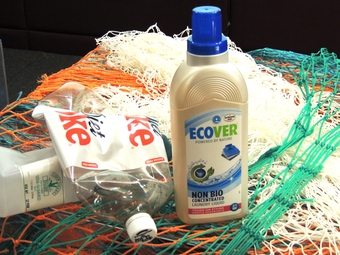The European Commission is seeking public opinion on the use of plastic carrier bags with a Europe-wide ban as one possible outcome.
In an internet-based survey it is asking whether people want to see the European Union legislate to prevent or restrict the use of carrier bags, and it brings in the further option of controlling bag disposal through biodegration with the associated discord over what can be described as biodegradable and what can’t.
 According to the Commission, the average EU citizen consumes approximately 500 plastic carrier bags a year, most of them used only once. “The total volume of plastic carrier bags produced in Europe in 2008 was 3·4 million tonnes. The low weight and small size of plastic bags means they often escape waste management and end up in the marine environment, where their eventual decay can take hundreds of years.
According to the Commission, the average EU citizen consumes approximately 500 plastic carrier bags a year, most of them used only once. “The total volume of plastic carrier bags produced in Europe in 2008 was 3·4 million tonnes. The low weight and small size of plastic bags means they often escape waste management and end up in the marine environment, where their eventual decay can take hundreds of years.
“Some member states have already taken action to reduce the use of plastic carrier bags through pricing measures, agreements with the retail sector and bans on certain types of bags, but there are no specific measures at the EU level.” The survey aims to find out whether there should be – in March environment ministers discussed the environmental impact of plastic carrier bags and, says the EC, the concerns raised indicated that EU-wide action is needed.
The survey asks initially whether the EU should become involved in reducing the use of carrier bags, and goes on to ask whether any reduction should be through a ban or through pricing/taxation measures. It asks whether any measures to reduce the use of carrier bags should distinguish between biodegradable and non-biodegradable bags and whether a mandatory marking system should be used to distinguish biodegradable bags. It also asks whether the current requirements on compostability and biodegradability in the Packaging Directive are appropriate, and whether “it should be clearly established that only those materials that biodegrade in natural conditions (on soil, in fresh water and/or in the sea) are to be called biodegradable”.
The survey runs until August. You can download a copy here. A 171-page report on plastics waste in the environment is available here.
Source : www.britishplastics.co.uk







